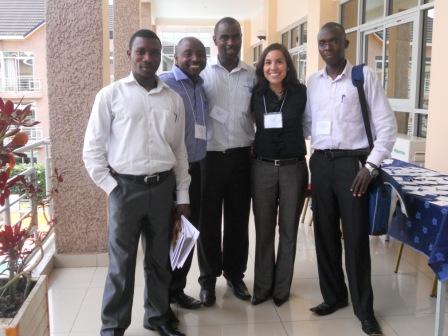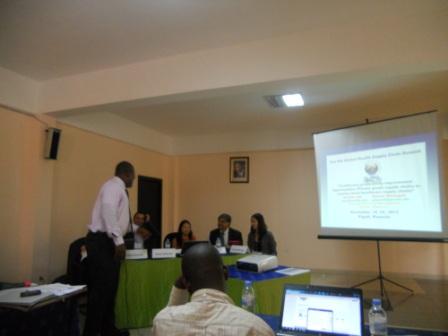 A supply chain is a network of people and processes that will cater to the end user, whom in my case are patients in resource poor settings. I have procured critical components for aircraft and engine systems, to improving the lead time performance of solar modules for retail & municipal entities. When I arrived to my village in Rwinkwavu, Rwanda and I was given a tour of the district hospitals I would be supporting, I immediately knew I was in for an entirely different experience. These are no longer widgets that I am procuring that will go on the roof of a building, but critical health commodities that will affect human lives. My work has not only been incredibly challenging, but also very fulfilling. I have learned a lot about supply chain challenges on a global scale and witnessed the effects of not having the right products at the right place at the right time.
A supply chain is a network of people and processes that will cater to the end user, whom in my case are patients in resource poor settings. I have procured critical components for aircraft and engine systems, to improving the lead time performance of solar modules for retail & municipal entities. When I arrived to my village in Rwinkwavu, Rwanda and I was given a tour of the district hospitals I would be supporting, I immediately knew I was in for an entirely different experience. These are no longer widgets that I am procuring that will go on the roof of a building, but critical health commodities that will affect human lives. My work has not only been incredibly challenging, but also very fulfilling. I have learned a lot about supply chain challenges on a global scale and witnessed the effects of not having the right products at the right place at the right time.
The Partners In Health Pharmacy Supply Chain Team had the pleasure of attending the International Association of Public Health Logistician’s (IAPHL) fifth Global Health Supply Chain Summit in Kigali, Rwanda. This is the first time the summit has ever been held in Africa and there were over a 100 participants from over 33 countries. The purpose of the summit was to foster interaction between implementer and academics to build knowledge and learning. Partners In Health sponsored the attendance of three head district pharmacists from Kirehe, Kayonza and Butaro districts.
We all got a chance to engage in conversations with many other participants from all over the world. We shared supply chain challenges from the field and collaborated with academics who also presented on their various research theories and ideas in regards to supply chain. Three key topics were discussed during the scheduled workshop sessions— 1) understanding and managing risk in the supply chain, 2) taking supply chain innovations to scale, and 3) bench-marking supply chain performance.
A huge highlight during the conference was meeting Dr. Noel Watson, founder of OPS MEND. He met with the PIH Pharmacy Team for a full two hours and discussed strategies on implementing performance metrics. He stressed the importance of having key performance indicators especially for those of us working in hospitals to measure how well we are doing as a team. It was incredibly refreshing to meet him and others from around the world who share my passion for process improvement and supply chain. In fact, as a result of the session, I am proud to say that alongside my manager and other teammates, we were able to draft our own key performance indicators (KPI’s) for what we would like to measure and see improve in our global supply chain at Partner’s in Health.
Strategic supply chain activities are often times put on the back-burner, but in order to deliver high quality health care to patients, it is important that we continue to educate ourselves and others on how critical it is to strengthen health systems by developing sustainable supply chain strategies. Having the right products at the right time and at a competitive price, especially for our cancer medications and medical equipment, will ensure that we are giving patients in rural areas the best access to health care. I am very happy and excited to be on this mission to transform global health, one patient at a time. I look forward to continue to sharpen my skills as a supply chain professional so I can continue to make that possible.




